Sunil Batra in New Delhi
The year 2010's is one telecom story that will keep ringing in people's minds for years to come -- leaked tapped conversations of a clutch of India's over 700 million phone subscribers outed how lobbying may have led to an alleged Rs 1.76 lakh crore (Rs 1.76 trillion) scam in the sale of radio waves.

All hell broke loose after the publication of the tapes, recorded by the Revenue Intelligence department between 2008-09, and the Opposition brought Parliament to a grinding halt demanding a certain probe.
If proved, this scam may turn out to be the biggest India has ever seen.
The developments have already over-shadowed the remarkable performance of the sector that has grown by leaps and bounds by adding up to 20 million new subscribers every month.
. . .
2010: Phone tap exposes telecom scam
There are already over 700 million phone subscribers in India.
The allegations of how companies benefitted from lobbying with the Telecom Ministry comes at a time when the industry is standing on the threshold of a new technology -- 3G, the spectrum for which was auctioned earlier this year.

It was based on the prices discovered during the 3G spectrum (radiowaves) auction that government auditor CAG separately arrived at the conclusion that the exchequer lost Rs 1.76 lakh crore in potential revenue by selling 2G spectrum in 2008 at 2001 prices.
The massive scam has more than once brought into question the very survival of the United Progressive Alliance-II government, given the Opposition parties unrelenting demand for a Joint Parliamentary Committee probe.
. . .
2010: Phone tap exposes telecom scam
Fears are that the Budget Session of Parliament may go the same way as the Winter Session, when no business in the interest of the common man was transacted.

The allegations have already claimed their first scalp, with A Raja resigning as Telecom Minister.
This was followed by CBI raids on the premises of Raja as well as his close aides, including his former personal secretary, a former Telecom Commission Chairman and a former Telecom Regulatory Authority of India chairman and some senior officials of the Department of Telecom.
The alleged scam led to a change of guard at Sanchar Bhawan, which houses the telecom ministry, with trusted Congress leader Kapil Sibal, another lawyer, taking over from Raja.
. . .
2010: Phone tap exposes telecom scam
And within days, administrative changes were initiated, including sending showcause notices to all new operators for allegedly submitting wrong information to bag licences.
Even before the leak of taped conversations that corporate lobbyist Niira Radia had with politicians, bureaucrats, industrialists and journalists, the crisis was building, but it was the tapes that fuelled it into a raging fire.

The phone conversations between corporate lobbyist Radia and politicians, particularly Raja, may complicate things further for the former Telecom Minister and the government, which also drew flak for tapping phones.
The controversy even reached the Prime Minister's Office, with the former Telecom Minister claiming that the Prime Minister was aware of all the decisions made.
The 2G spectrum controversy, however, has failed to so far bring the sector to its knees.
. . .
2010: Phone tap exposes telecom scam
Image: Prem (3), the son of an idol vendor, plays with a mobile phone.Photographs: Ajay Verma/Reuters
New subscribers are being added by the millions every month and next generation mobile technology and the countrywide roll-out of new services like mobile number portability are on the anvil.

During 2010, while 2G shook the nation over alleged irregularities in spectrum allocation, 3G took everyone by surprise as the auction of spectrum and wireless broadband frequencies surpassed all expectations, resulting in a whopping revenue of Rs 1.05 lakh crore (Rs 1.05 trillion) for the government.
On the 3G front, some operators have already launched services, while others are in the process of doing so.
. . .
2010: Phone tap exposes telecom scam
Image: People sit in a flooded phone booth at a bus station after heavy rains in New Delhi.Photographs: Enrico Fabian/Reuters
The subscribers will, however, not be able to use video calling facility, one of the main attractions of 3G, till operators put in place technology for real-time monitoring, given the security risk.

Nevertheless, 3G is likely to take telephony to a new level, as operators are promising high-speed mobile broadband and many more additional value-added services on mobile devices.
Tariffs for the existing services touched new lows in 2010, with some operators offering half-a-paisa per second call rates to add more and more subscribers to their base.
Even 3G is likely to be a low-tariff affair, despite the massive sums paid by the operators to bag spectrum under the auction.
Another user-centric service, mobile number portability, was launched recently, though after missing several deadlines.
. . .
2010: Phone tap exposes telecom scam
The service is bound to force the service providers to offer best quality services to retain subscribers.
MNP allows subscribers to change service providers while retaining their mobile number.

The service, which is available only in Haryana at present, is likely to become available on a commercial basis across the country from the middle of next month.
Another issue that remained in focus during the year was that of Research In Motion being asked to provide facilities for interception of encrypted data received and sent using its high-end Blackberry handsets for security reasons.
Canada-based Research in Motion has been maintaining that the company is unable to access mails sent using its Enterprise service, but Indian security agencies are still insisting on an interception facility.
The matter is not yet closed and the company has been given time to comply with the authorities' demand till next month.
. . .
2010: Phone tap exposes telecom scam
Amid all the scams and controversies, one positive and perhaps the most important development in the sector during 2010, was Bharti Airtel's buy-out of Zain Telecom's business in 17 African nations, following which it emerged as the fifth largest operator in the world.

Sunil Mittal-promoted Bharti Airtel clinched the deal for an enterprise value of $9.1 billion (about Rs 50,000 crore), making it a single largest deal by any Indian in the telecom sector.
The alleged financial scam resulting from 2G spectrum allotment has undoubtedly tarnished the good work done by the sector so far.
It has appeared as a blot on its shining performance year-after-year.
However, the highs and lows during the year not withstanding, the Indian telecom sector is likely to shrug off the controversy and remain buoyant as new technologies and new services enter the market.

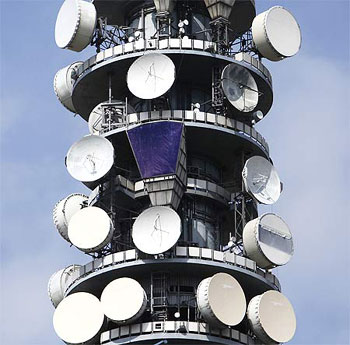

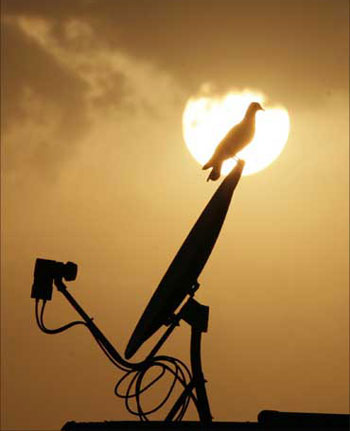
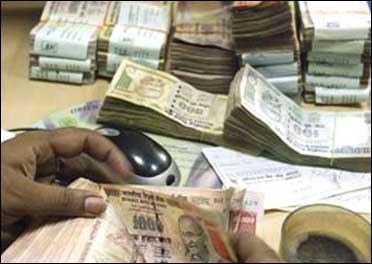

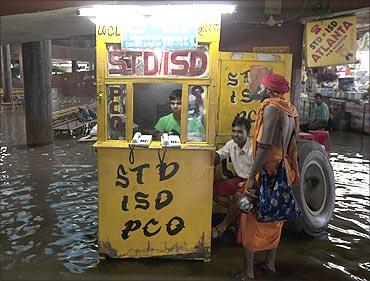
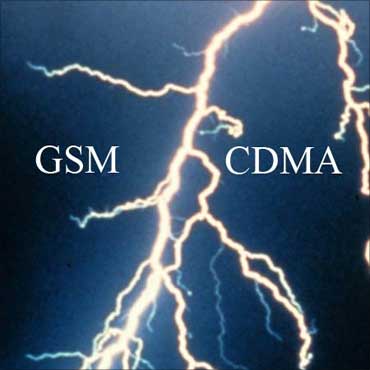
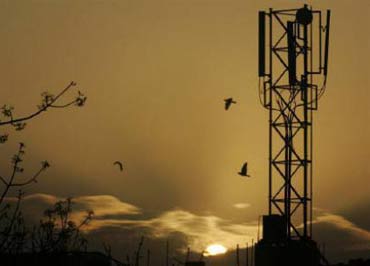
article